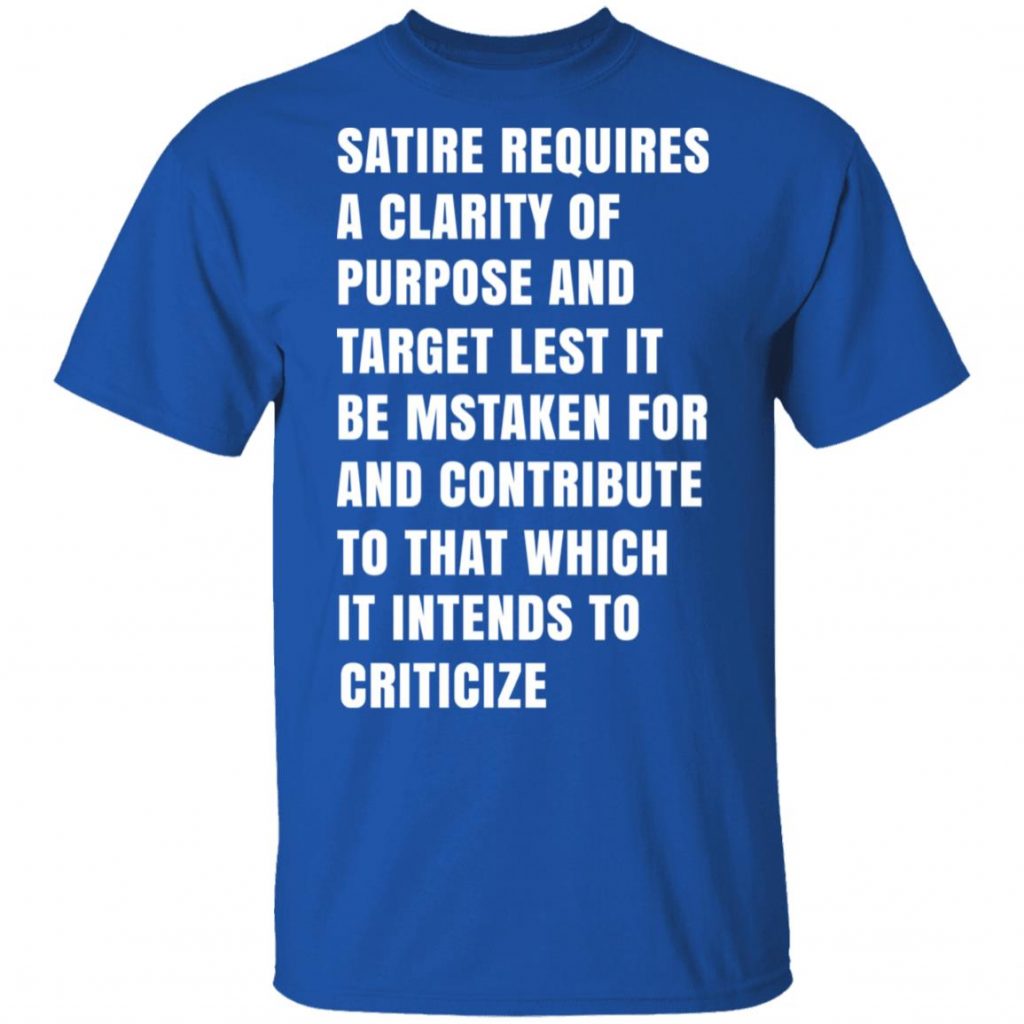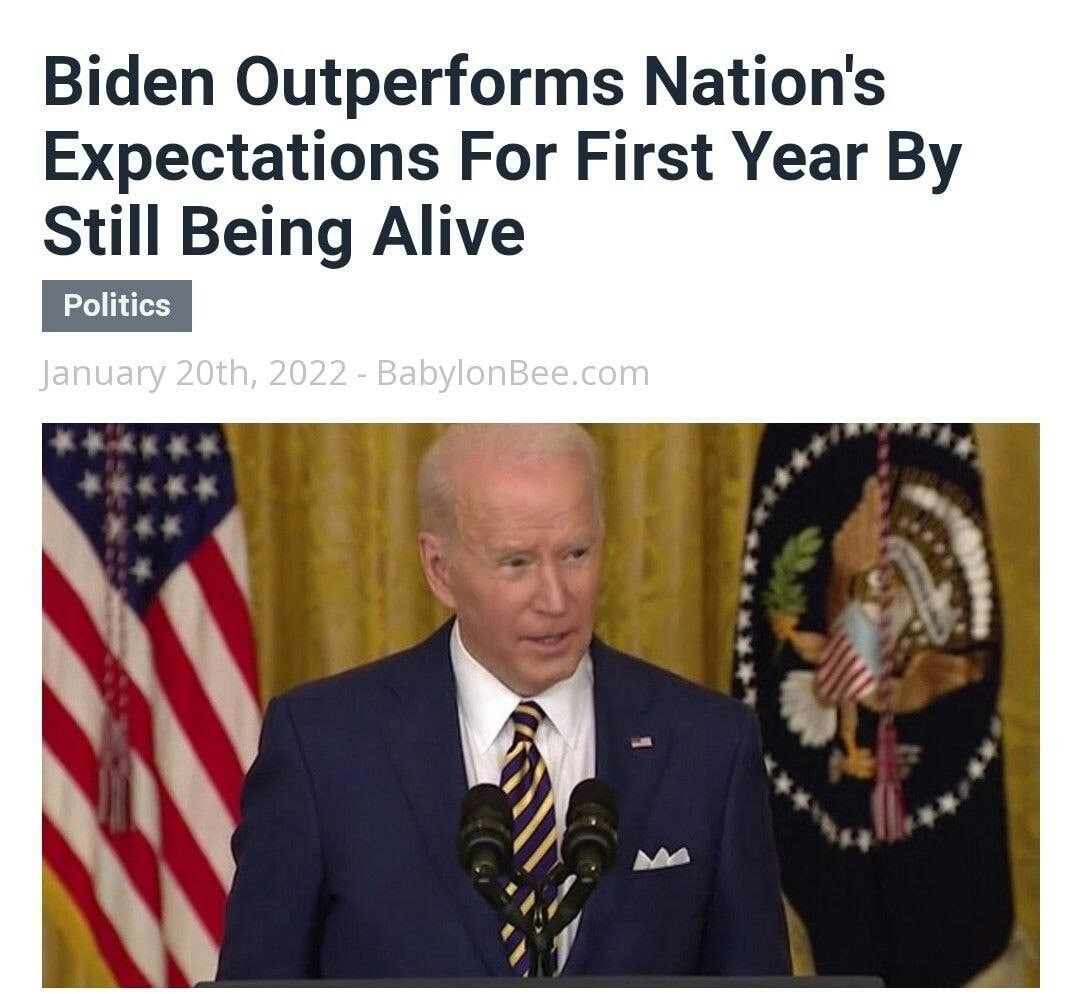Satire Requires Clarity Of Purpose - A Deep Look
When we talk about humor that has a bit of a bite, especially the kind that makes you think, we're very often talking about satire. It's a way of looking at things that are not quite right in our world, whether it's how people behave, what they believe, or even the big systems we live within. This kind of writing or communication, you know, doesn't just aim for a laugh; it tries to show something important, sometimes by being quite direct, but more often by playing with ideas through clever twists, playful imitations, or making things seem bigger than they are.
It's a special kind of verbal artistry, really, designed to make foolishness or poor choices seem silly. The main point of it, in some respects, is to bring these issues out into the open, perhaps even to help fix them or at least get people talking. The things satire often zeroes in on are just the little human weaknesses, how those show up in what we do, or the thoughts we hold. It's a funny sort of criticism, honestly, used to point out problems with people or their ideas, particularly when it comes to things like how we govern ourselves.
You could say satire is quite good at making someone or something look a bit silly. It gets a chuckle, which then, basically, makes the target feel a little awkward, less important, or just not very believable. It’s a tool for talking about society and politics, using methods like making things bigger than they are, saying one thing but meaning another, jokes, or even stories that stand for something else, all to get a message across. For satire to hit its mark, especially in the quick-fire world of online communication, it really needs a clear idea of what it's trying to say, so it doesn't just become noise. This idea that satire requires clarity of purpose, too it's almost, is more important than ever.
Table of Contents
- What is Satire, Anyway?
- Why Satire Requires Clarity of Purpose in its Message
- How Does Satire Work Its Magic?
- The Power of Purpose: When Satire Requires Clarity of Purpose
- When Satire Misses Its Mark: What Happens If Satire Lacks Clarity of Purpose?
- Satire in the Modern Age: Does Satire Still Require Clarity of Purpose?
- Making Your Satire Sharp and On Point
- The Lasting Impact of Purposeful Satire
What is Satire, Anyway?
So, let's get down to what satire really is. At its core, it's a kind of communication that uses humor, or irony, or making things seem much bigger than they are, or just plain teasing, to show and criticize people's foolishness or bad habits. It's a way of using words to persuade or make a point, actually. Think of it as a special writing method and a whole type of story that uses making things bigger, jokes, irony, or just plain teasing to point out what's wrong or silly about people and the world we live in. Quite often, it aims at political matters, you know.
For a very long time, people have used satire. Consider old Greece, for instance; it started to grow into its own kind of writing, moving past old traditions and magic. The goal was always, basically, to make someone or something look silly, get a laugh, and then make the target feel a bit awkward or less important. It's a way of criticizing people or ideas in a funny way, especially to make a political point. This kind of writing or speaking, you see, exposes or makes fun of how people act, what they believe, or the way things are set up, sometimes directly, but more often through clever tricks like irony or making fun of something by copying it in a silly way. It truly is a powerful form of expression, a little bit like a mirror held up to society, but a funhouse mirror that distorts just enough to make you notice the flaws.
Why Satire Requires Clarity of Purpose in its Message
Now, here's the kicker: for satire to really work, it needs to have a clear reason for being. If the person creating the satire doesn't quite know what point they're trying to make, or who their target is, it can just fall flat. Or, even worse, it could be misunderstood entirely, which, you know, defeats the whole point. When satire has a fuzzy aim, it might just seem mean-spirited or confusing, rather than thought-provoking. The whole idea is to get people to think, to question, and maybe even to change something, so a muddled message won't cut it. It’s like telling a joke where the punchline isn’t clear; nobody really gets it, and then the moment is lost. That, is that, why satire requires clarity of purpose, it's pretty much non-negotiable.
The definitions of satire themselves hint at this need for a clear goal. It's about "exposing or correcting," "discrediting its targets," or "making a point." These are all active, purposeful verbs. They suggest a deliberate intent behind the humor. If the intent isn't clear, then the "exposing" might just be seen as bullying, the "correcting" as preaching, and the "making a point" as just random noise. In a world where we're constantly bombarded with information, and quick takes are everywhere, a piece of satire that lacks a sharp edge of purpose can easily be dismissed or, even worse, misinterpreted as supporting the very thing it aims to criticize. This is why, in some respects, the message behind the laughter matters so much.
How Does Satire Work Its Magic?
Satire uses a few key ingredients to do what it does. One big one is exaggeration, where things are made out to be much bigger or more ridiculous than they are in real life. This helps to highlight how silly or extreme something truly is. Then there's irony, which is when you say one thing but mean the opposite, or when something happens that's the opposite of what you'd expect. This can be a very clever way to make a point without being overly direct. Humor, of course, is a core part, because laughter helps to get people's attention and makes the message more memorable. It's often the spoonful of sugar that helps the medicine go down, so to speak. These elements are not just for fun; they are tools that help satire requires clarity of purpose to really shine.
Another element is parody, which is when you copy something in a funny, exaggerated way to make fun of it. Think of a silly song that sounds just like a famous one but has completely different, funny words. Caricature, too, is used a lot, where certain features or traits are made much bigger to make a person or group look funny or foolish. All these methods are chosen for a reason: to make a specific point about something or someone. They aren't just random jokes; they are carefully picked ways to deliver a message that might be difficult to hear otherwise. It's a bit like a puzzle, where each piece fits together to reveal a bigger picture, a picture that, hopefully, makes you think.
The Power of Purpose: When Satire Requires Clarity of Purpose
When satire truly knows what it wants to achieve, it becomes incredibly powerful. It can hold a mirror up to society, showing us our flaws and foolishness in a way that direct criticism might not. Because it's funny, people are often more open to hearing the message. It can start important conversations, challenge widely held beliefs, and even push for social change. A well-crafted piece of satire, with its purpose crystal clear, can stick with people long after they've laughed, making them ponder the issues it brought up. It's like a small seed planted in the mind, which, you know, can grow into bigger thoughts.
Consider some of the famous examples throughout history, like certain political cartoons or even classic books that used humor to critique their times. These works didn't just make people laugh; they made them think about the powerful people, the common beliefs, or the big systems that were being poked fun at. The creators of these pieces had a very clear idea of what they were trying to say and who they were trying to say it to. This sharp focus is what gave their work its lasting impact. It wasn't just humor for humor's sake; it was humor with a mission. This is where the idea that satire requires clarity of purpose really comes into its own, providing direction and impact.
When Satire Misses Its Mark: What Happens If Satire Lacks Clarity of Purpose?
On the flip side, what happens when satire doesn't have that clear purpose? Well, it can go wrong in several ways. Sometimes, it just isn't funny, because the humor doesn't connect to a deeper point. Other times, it might be misunderstood entirely, especially in today's fast-paced digital conversations. A joke meant to highlight a problem could be taken literally, or even worse, be seen as promoting the very thing it was trying to criticize. This can lead to confusion, anger, and a complete breakdown of communication. It’s like trying to hit a target in the dark; you might hit something, but it probably won't be what you aimed for. This is why, you know, a lack of clear purpose can be a real problem for satire.
Without a clear target or message, satire can also come across as just mean. If the audience doesn't understand *why* something is being ridiculed, they might just see it as someone being cruel or unfair. This is especially true when dealing with sensitive topics. Satire needs to walk a fine line, using humor to make a point without causing unnecessary harm or offense, unless that offense is part of the deliberate message. If the purpose isn't clear, the audience might just feel attacked or confused, rather than enlightened or entertained. This is why, for satire to be effective, it really does need to have a very specific goal in mind. It's not just about being funny; it's about being funny with a point, a point that, basically, everyone can grasp.
Satire in the Modern Age: Does Satire Still Require Clarity of Purpose?
In our modern world, where ideas spread very quickly, and often without much context, the need for clarity in satire is perhaps more important than ever. A short meme, a quick tweet, or a viral video can be seen by millions in moments. If the satirical intent isn't immediately obvious, it can be easily misinterpreted, taken out of context, or even weaponized by those who wish to distort its meaning. This can lead to unintended consequences, like backlash or the spread of misinformation. The speed of sharing means there's less time for people to sit and ponder the deeper meaning; it needs to be relatively clear from the start, you know.
Because of this, creators of satire today face a unique challenge. They need to craft their messages in a way that is both clever and clear, funny yet purposeful. The "meme" aspect of the phrase "satire requires clarity of purpose meme" really highlights this. Memes are often short, visually driven, and rely on shared cultural knowledge. If a satirical meme lacks a clear target or message, it can quickly lose its punch or, worse, be used to say something entirely different from what was intended. So, yes, even in the age of quick-hit digital content, the need for satire to have a clear reason for being is absolutely vital for its success and impact.
Making Your Satire Sharp and On Point
So, how do you make sure your satire is sharp and effective? It starts with knowing your target. Who or what are you trying to critique? Is it a person, a policy, a common way of thinking? Having a very specific target helps to focus your humor. Next, consider your message. What specific point are you trying to make about that target? What change do you hope to inspire, or what truth do you want to expose? This clarity of message is what turns a simple joke into a powerful piece of satire. It's about having a strong "why" behind the "what," which, you know, makes all the difference.
Then, think about your audience. Who are you trying to reach, and what do they already know or believe? Understanding your audience helps you choose the right kind of humor and the right satirical devices. What might be funny or clear to one group could be confusing or offensive to another. The goal is to make sure your audience "gets" the joke and, more importantly, "gets" the point behind the joke. It’s a delicate balance, really, but one that is crucial for satire to achieve its intended effect. When satire requires clarity of purpose, it's a careful dance between wit and wisdom, ensuring the laughter serves a greater aim.
The Lasting Impact of Purposeful Satire
When satire is crafted with a clear purpose, it does more than just entertain. It becomes a form of social commentary, a way to hold power to account, and a means of sparking important discussions. It can challenge the status quo, make us question our own assumptions, and even inspire action. The humor acts as a Trojan horse, delivering a serious message in a palatable way. It’s a subtle yet powerful form of persuasion, a bit like a gentle nudge that makes you look at things from a new angle. This lasting impact is why having a clear goal is so important for any form of satirical expression.
From ancient Greek plays to modern-day political cartoons and internet memes, satire has always been a mirror, reflecting the absurdities and flaws of humanity back at us. But for that reflection to be meaningful, it needs to be focused. It needs to know what it's trying to show and why. Without that sharp focus, it risks becoming just noise, or worse, being misunderstood entirely. So, the next time you encounter a piece of satire, or even think about creating one, remember that a clear purpose is the secret ingredient that gives it its true power and punch. It's what makes the laughter meaningful, and the message memorable.



Detail Author:
- Name : Vicenta Bradtke
- Username : nicolas.makayla
- Email : hemard@quitzon.com
- Birthdate : 2005-05-24
- Address : 153 Lindsey Oval Reichelport, AR 36248
- Phone : +1 (747) 564-6741
- Company : Pfeffer, Osinski and Smitham
- Job : Heating Equipment Operator
- Bio : Harum magnam qui odit quaerat pariatur fuga assumenda. Dolorum aut omnis totam porro consequatur. Omnis a nihil officia sunt unde veritatis. Fuga magni qui dolorem.
Socials
tiktok:
- url : https://tiktok.com/@coles
- username : coles
- bio : Voluptatem sint consequatur neque dolore omnis.
- followers : 3178
- following : 688
instagram:
- url : https://instagram.com/shyannecole
- username : shyannecole
- bio : Illum minima fugiat quaerat et. Et itaque sint nobis ab vel.
- followers : 6899
- following : 2256
linkedin:
- url : https://linkedin.com/in/cole2022
- username : cole2022
- bio : Eius ullam voluptas ut occaecati odit.
- followers : 2445
- following : 1866
twitter:
- url : https://twitter.com/cole1983
- username : cole1983
- bio : Id et nihil ut voluptatibus eos ex. Voluptatem enim porro aspernatur et. Commodi est qui quod voluptatem ut voluptatem libero.
- followers : 5797
- following : 130
facebook:
- url : https://facebook.com/cole2019
- username : cole2019
- bio : Est asperiores odio mollitia facilis reprehenderit.
- followers : 5115
- following : 907